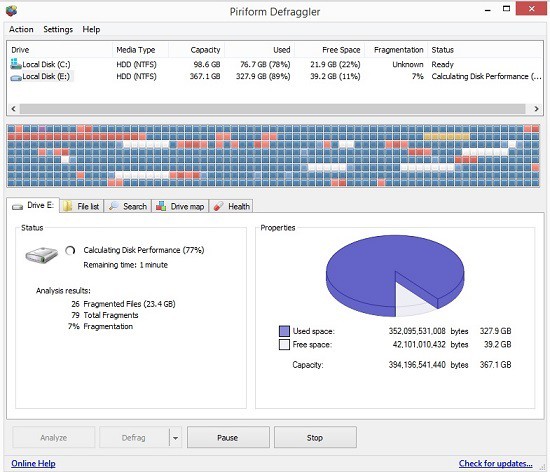
The fact is that for SSDs, it is useless moreover, the lifespan of such a disk will decrease a lot after defragmentation. The answer to this question is: if you have an HDD, defragmentation is worthwhile, but if you have an SSD, it is not. Therefore, for guaranteed improvement in the operation of your hard drive, it is recommended to periodically defragment it. In recent versions of Windows, this function is performed automatically, but not always. To defrag an external HDD will speed up such a disk. This leads to longer data processing since it is difficult to find the necessary information due to “gaps”. Naturally, during the operation of the disk, you will delete unnecessary files, and after removal of the external disk, there is empty space. When you save data to external media, it is automatically distributed across clusters. To understand why you need to use defragmentation on external disks, you need to understand the essence of this procedure. Defragmentation and external HDD performance Therefore, anyone can optimize their disk without much effort. Recently, much effort has been devoted to this issue and programs for defragmenting disks have become both much more advanced and simpler to use.

But it is very effective for improving disk performance. It was not always possible to defragment the disk regularly this was partly due to lack of time since defragmentation is a lengthy process. Until recently, defragmenting both internal and external hard drives was cumbersome, difficult, and unpredictable for most users.


 0 kommentar(er)
0 kommentar(er)
